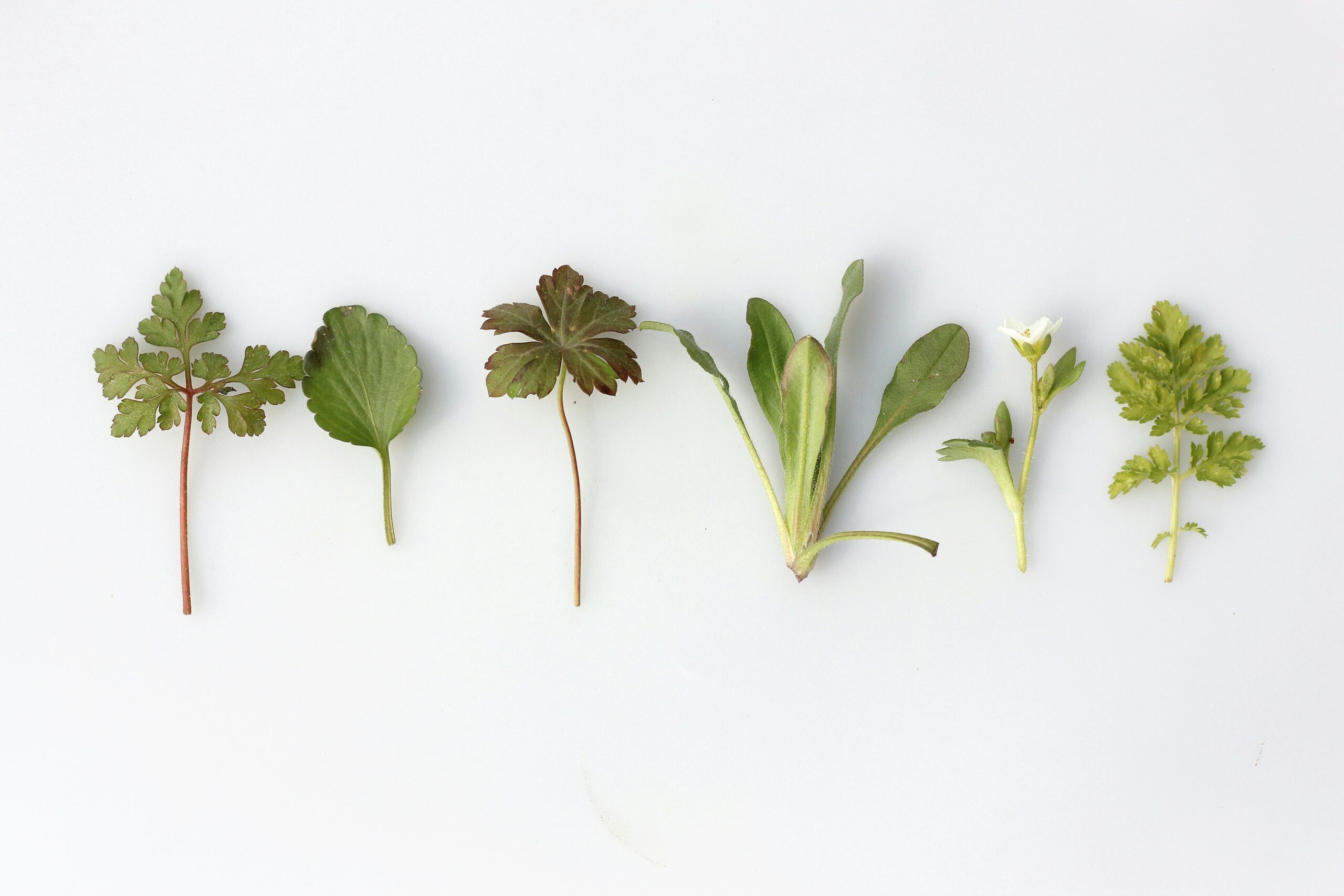Nootropic herbs are natural substances that can enhance cognitive functions such as memory, creativity, focus, and motivation. Unlike synthetic nootropics, these herbs have been used for centuries in traditional medicine systems like Ayurveda and Traditional Chinese Medicine (TCM). With the growing interest in cognitive enhancement, nootropic herbs are becoming increasingly popular among students, professionals, and anyone looking to boost their mental performance. This comprehensive guide will explore the best nootropic herbs, their benefits, how they work, and how to use them effectively.
Understanding Nootropic Herbs
Nootropic herbs work through various mechanisms to improve brain function. They can enhance neurotransmitter activity, increase blood flow to the brain, reduce inflammation, and protect neurons from damage. Here are some of the most effective nootropic herbs:
Types of Nootropic Herbs
- Adaptogens: These herbs help the body adapt to stress and improve overall well-being. Examples include Ashwagandha and Rhodiola Rosea.
- Cognitive Enhancers: Herbs that directly improve brain function, such as Ginkgo Biloba and Bacopa Monnieri.
- Neuroprotective Herbs: These herbs protect brain cells from damage and support long-term brain health, like Lion’s Mane Mushroom and Gotu Kola.
Benefits of Nootropic Herbs
- Improved Memory: Nootropic herbs can enhance both short-term and long-term memory.
- Enhanced Focus and Concentration: They can help you stay focused and improve your attention span.
- Reduced Anxiety and Stress: Many nootropic herbs have calming effects that can reduce anxiety and stress.
- Better Mood: These herbs can improve mood and reduce symptoms of depression.
- Neuroprotection: They protect the brain from oxidative stress and inflammation.
Top Nootropic Herbs Comparison Table
| Herb Name | Key Benefits | Mechanism of Action | Common Forms | Price Range |
|---|---|---|---|---|
| Ashwagandha | Reduces stress, improves mood, enhances memory | Adaptogen, cortisol reduction | Capsules, powder | $15-$30 |
| Rhodiola Rosea | Reduces fatigue, enhances mental performance | Adaptogen, modulates cortisol levels | Capsules, powder | $20-$35 |
| Bacopa Monnieri | Enhances memory, reduces anxiety | Increases neurotransmitter activity | Capsules, powder | $15-$25 |
| Ginkgo Biloba | Improves circulation, enhances memory | Increases blood flow, antioxidant | Capsules, extract | $10-$20 |
| Lion’s Mane Mushroom | Neuroprotection, enhances cognitive function | Stimulates nerve growth factor (NGF) | Capsules, powder | $20-$40 |
| Gotu Kola | Enhances memory, reduces anxiety | Improves circulation, neuroprotection | Capsules, powder | $15-$25 |
| Panax Ginseng | Increases energy, enhances cognitive function | Adaptogen, antioxidant | Capsules, extract | $25-$50 |
| Holy Basil (Tulsi) | Reduces stress, improves mood | Adaptogen, reduces cortisol | Capsules, tea | $10-$20 |
| Maca Root | Enhances mood, increases energy | Balances hormones, increases endurance | Capsules, powder | $15-$30 |
| Valerian Root | Reduces anxiety, improves sleep | Increases GABA, relaxant | Capsules, tea | $10-$20 |
Detailed Reviews of Top Nootropic Herbs
Ashwagandha
Key Benefits: Reduces stress, improves mood, enhances memory
Mechanism of Action: Ashwagandha is an adaptogen that helps the body manage stress by reducing cortisol levels. It also enhances memory and cognitive function by modulating neurotransmitter activity.
Common Forms: Capsules, powder
Price Range: $15-$30
Pros:
- Effective stress reducer
- Enhances mood and cognitive function
- Improves sleep quality
Cons:
- May cause mild digestive issues
- Not suitable for pregnant women
Rhodiola Rosea
Key Benefits: Reduces fatigue, enhances mental performance
Mechanism of Action: Rhodiola Rosea is an adaptogen that helps balance cortisol levels, enhancing mental performance and reducing fatigue.
Common Forms: Capsules, powder
Price Range: $20-$35
Pros:
- Reduces mental and physical fatigue
- Enhances cognitive function
- Supports emotional well-being
Cons:
- May cause jitteriness in some people
- Potential for mild headaches
Bacopa Monnieri
Key Benefits: Enhances memory, reduces anxiety
Mechanism of Action: Bacopa Monnieri increases neurotransmitter activity, particularly serotonin and acetylcholine, which are crucial for memory and mood regulation.
Common Forms: Capsules, powder
Price Range: $15-$25
Pros:
- Improves memory and cognitive function
- Reduces anxiety and stress
- Supports brain health
Cons:
- Takes time to see noticeable effects
- May cause mild digestive discomfort
Ginkgo Biloba
Key Benefits: Improves circulation, enhances memory
Mechanism of Action: Ginkgo Biloba increases blood flow to the brain and has antioxidant properties that protect against neural damage.
Common Forms: Capsules, extract
Price Range: $10-$20
Pros:
- Enhances memory and cognitive function
- Supports brain health
- Antioxidant properties
Cons:
- May interact with blood thinners
- Possible mild digestive issues
Lion’s Mane Mushroom
Key Benefits: Neuroprotection, enhances cognitive function
Mechanism of Action: Lion’s Mane Mushroom stimulates the production of nerve growth factor (NGF), which supports brain health and cognitive function.
Common Forms: Capsules, powder
Price Range: $20-$40
Pros:
- Promotes neurogenesis
- Enhances cognitive function
- Supports overall brain health
Cons:
- Expensive compared to other herbs
- May cause allergic reactions in some people
Gotu Kola
Key Benefits: Enhances memory, reduces anxiety
Mechanism of Action: Gotu Kola improves circulation and provides neuroprotection, enhancing memory and reducing anxiety.
Common Forms: Capsules, powder
Price Range: $15-$25
Pros:
- Improves cognitive function
- Reduces anxiety and stress
- Supports overall brain health
Cons:
- May cause drowsiness in some individuals
- Possible digestive discomfort
Panax Ginseng
Key Benefits: Increases energy, enhances cognitive function
Mechanism of Action: Panax Ginseng is an adaptogen and antioxidant that supports energy levels and cognitive function.
Common Forms: Capsules, extract
Price Range: $25-$50
Pros:
- Boosts energy and mental performance
- Supports immune function
- Reduces stress and anxiety
Cons:
- Can cause insomnia if taken late in the day
- May interact with certain medications
Holy Basil (Tulsi)
Key Benefits: Reduces stress, improves mood
Mechanism of Action: Holy Basil is an adaptogen that reduces cortisol levels and enhances mood.
Common Forms: Capsules, tea
Price Range: $10-$20
Pros:
- Effective stress reducer
- Enhances mood and cognitive function
- Supports overall health
Cons:
- May lower blood sugar levels
- Possible mild digestive issues
Maca Root
Key Benefits: Enhances mood, increases energy
Mechanism of Action: Maca Root balances hormones and increases endurance, improving mood and energy levels.
Common Forms: Capsules, powder
Price Range: $15-$30
Pros:
- Boosts energy and endurance
- Improves mood and cognitive function
- Supports hormonal balance
Cons:
- May cause digestive discomfort
- Not suitable for individuals with thyroid issues
Valerian Root
Key Benefits: Reduces anxiety, improves sleep
Mechanism of Action: Valerian Root increases GABA levels in the brain, promoting relaxation and improving sleep quality.
Common Forms: Capsules, tea
Price Range: $10-$20
Pros:
- Promotes relaxation and reduces anxiety
- Improves sleep quality
- Natural sedative
Cons:
- Can cause drowsiness during the day
- Potential for mild digestive issues
How to Choose the Best Nootropic Herb
Choosing the best nootropic herb depends on your specific needs and health goals. Here are some factors to consider:
Identify Your Needs
Determine whether you need help with memory, focus, stress reduction, or overall cognitive enhancement. This will help you select the most appropriate herb.
Check the Ingredients
Ensure the herb is of high quality and free from contaminants. Look for third-party testing and certifications to guarantee purity and potency.
Consider the Form
Nootropic herbs come in various forms such as capsules, powders, teas, and extracts. Choose a form that is convenient for you and fits your lifestyle.
Assess the Dosage
Follow the recommended dosage on the product label. Start with a lower dose to assess tolerance and gradually increase if necessary.
Read Reviews
Check customer reviews and testimonials to gauge the effectiveness and potential side effects of the herb.
Combining Nootropic Herbs for Enhanced Benefits
While individual nootropic herbs offer significant cognitive benefits, combining them can often amplify their effects. Known as “stacking,” this practice involves using multiple nootropic herbs in tandem to create a synergistic effect. Here are some popular nootropic stacks:
Popular Nootropic Stacks
- Memory and Focus Stack: Bacopa Monnieri + Ginkgo Biloba
- Benefits: Enhanced memory, improved focus, and cognitive function.
- How it works: Bacopa Monnieri enhances neurotransmitter activity, while Ginkgo Biloba increases blood flow to the brain, providing a comprehensive cognitive boost.
- Stress and Mood Stack: Ashwagandha + Holy Basil
- Benefits: Reduced stress, improved mood, and enhanced well-being.
- How it works: Both Ashwagandha and Holy Basil are adaptogens that help manage stress by modulating cortisol levels and promoting a calm state of mind.
- Energy and Performance Stack: Rhodiola Rosea + Panax Ginseng
- Benefits: Increased energy, reduced fatigue, and enhanced mental and physical performance.
- How it works: Rhodiola Rosea reduces fatigue and enhances mental performance, while Panax Ginseng boosts energy levels and supports cognitive function.
- Neuroprotection Stack: Lion’s Mane Mushroom + Gotu Kola
- Benefits: Enhanced cognitive function, neuroprotection, and improved memory.
- How it works: Lion’s Mane Mushroom stimulates nerve growth factor, promoting brain health, while Gotu Kola provides neuroprotection and improves circulation.
Potential Side Effects and Precautions
Although nootropic herbs are generally considered safe, they can cause side effects in some individuals. Here are some common side effects and precautions to consider:
Common Side Effects
- Digestive Issues: Some herbs, like Ashwagandha and Bacopa Monnieri, may cause mild digestive discomfort.
- Allergic Reactions: Certain herbs, such as Lion’s Mane Mushroom, can cause allergic reactions in sensitive individuals.
- Drowsiness: Herbs like Valerian Root may cause drowsiness, especially if taken during the day.
- Interactions with Medications: Some nootropic herbs, like Ginkgo Biloba and Panax Ginseng, may interact with medications. Always consult a healthcare professional before starting any new supplement.
Precautions
- Start with a Low Dose: Begin with a lower dose to assess tolerance and gradually increase if needed.
- Consult with a Healthcare Professional: Especially if you have underlying health conditions or are taking medications.
- Monitor for Side Effects: Pay attention to any adverse reactions and discontinue use if necessary.
- Avoid During Pregnancy and Breastfeeding: Some nootropic herbs are not recommended for pregnant or breastfeeding women.
How to Incorporate Nootropic Herbs into Your Routine
Incorporating nootropic herbs into your daily routine can be simple and effective. Here are some tips to get started:
- Create a Schedule: Consistency is key. Take your chosen nootropic herbs at the same time each day to maximize their benefits.
- Combine with a Healthy Lifestyle: Complement the use of nootropic herbs with a balanced diet, regular exercise, and adequate sleep for optimal cognitive health.
- Stay Hydrated: Drinking plenty of water can enhance the effectiveness of nootropic herbs and support overall brain function.
- Track Your Progress: Keep a journal to monitor the effects of the nootropic herbs and adjust your regimen as needed.
40 Frequently Asked Questions About Nootropic Herbs
What are nootropic herbs?
Nootropic herbs are natural substances that enhance cognitive functions such as memory, focus, creativity, and motivation. They have been used for centuries in traditional medicine systems like Ayurveda and Traditional Chinese Medicine (TCM).
How do nootropic herbs work?
Nootropic herbs work through various mechanisms, including enhancing neurotransmitter activity, increasing blood flow to the brain, reducing inflammation, and protecting neurons from damage.
What are adaptogens?
Adaptogens are a class of herbs that help the body adapt to stress and improve overall well-being. Examples include Ashwagandha and Rhodiola Rosea.
What is the difference between nootropic herbs and synthetic nootropics?
Nootropic herbs are natural and have been used traditionally for centuries, while synthetic nootropics are man-made substances designed to enhance cognitive function.
Are nootropic herbs safe?
Generally, nootropic herbs are considered safe when used appropriately. However, they can cause side effects in some individuals, so it’s important to follow recommended dosages and consult with a healthcare professional.
Can nootropic herbs be taken daily?
Many nootropic herbs can be taken daily, but it’s important to follow the recommended dosages and take breaks if necessary to avoid building tolerance.
What are the best nootropic herbs for memory?
Bacopa Monnieri, Ginkgo Biloba, and Gotu Kola are among the best nootropic herbs for enhancing memory.
Can nootropic herbs help with anxiety?
Yes, several nootropic herbs such as Ashwagandha, Valerian Root, and Holy Basil have calming effects that can reduce anxiety.
What are the side effects of nootropic herbs?
Common side effects can include digestive discomfort, drowsiness, allergic reactions, and interactions with medications.
How long does it take for nootropic herbs to work?
The time it takes for nootropic herbs to work varies depending on the herb and the individual. Some effects can be felt within hours, while others may take weeks of consistent use.
Are nootropic herbs addictive?
Nootropic herbs are generally not addictive and can be used safely as part of a regular health regimen.
Can nootropic herbs improve mood?
Yes, many nootropic herbs such as Ashwagandha, Holy Basil, and Maca Root can improve mood and reduce symptoms of depression.
What is the best way to take nootropic herbs?
Nootropic herbs come in various forms such as capsules, powders, teas, and extracts. Choose a form that is convenient for you and fits your lifestyle.
Can children take nootropic herbs?
It is important to consult with a healthcare professional before giving nootropic herbs to children, as their effects on developing brains are not well studied.
Can pregnant or breastfeeding women take nootropic herbs?
Some nootropic herbs are not recommended for pregnant or breastfeeding women. Always consult with a healthcare professional before use.
Do nootropic herbs interact with medications?
Some nootropic herbs can interact with medications. Consult with a healthcare professional if you are taking any medications.
What are the best nootropic herbs for focus and concentration?
Bacopa Monnieri, Ginkgo Biloba, and Rhodiola Rosea are effective for improving focus and concentration.
How do I choose a high-quality nootropic herb?
Look for third-party testing and certifications to ensure purity and potency. Check customer reviews and choose reputable brands.
Can nootropic herbs enhance physical performance?
Some nootropic herbs, like Panax Ginseng and Rhodiola Rosea, can enhance physical performance by reducing fatigue and increasing energy levels.
Are there any long-term effects of taking nootropic herbs?
Long-term effects can vary depending on the herb and individual. Some herbs like Lion’s Mane Mushroom provide long-term brain health benefits, but it’s important to use them as directed.
What are the best nootropic herbs for reducing stress?
Ashwagandha, Holy Basil, and Rhodiola Rosea are among the best nootropic herbs for reducing stress.
Can nootropic herbs be used in combination?
Yes, combining nootropic herbs, known as “stacking,” can amplify their effects. However, it’s important to research and use combinations safely.
How do I store nootropic herbs?
Store nootropic herbs in a cool, dry place, away from direct sunlight to maintain their potency.
Are there any dietary restrictions while taking nootropic herbs?
There are generally no specific dietary restrictions, but maintaining a balanced diet can support the effectiveness of nootropic herbs.
Can nootropic herbs improve sleep?
Yes, herbs like Valerian Root and Ashwagandha can promote relaxation and improve sleep quality.
How do nootropic herbs compare to pharmaceutical cognitive enhancers?
Nootropic herbs are natural and often have fewer side effects compared to pharmaceutical cognitive enhancers, but they may also have milder effects.
What are some common forms of nootropic herbs?
Common forms include capsules, powders, teas, and extracts.
Can nootropic herbs help with ADHD?
Some nootropic herbs, like Bacopa Monnieri and Ginkgo Biloba, may help improve focus and attention in individuals with ADHD, but it’s important to consult with a healthcare professional.
How do I know if a nootropic herb is working?
Monitor changes in your cognitive function, mood, and overall well-being. Keeping a journal can help track progress.
Are nootropic herbs regulated?
Nootropic herbs are not as strictly regulated as pharmaceutical drugs, so it’s important to choose high-quality, reputable products.
Can nootropic herbs help with age-related cognitive decline?
Yes, herbs like Lion’s Mane Mushroom and Ginkgo Biloba can support brain health and potentially slow age-related cognitive decline.
What are the best nootropic herbs for neuroprotection?
Lion’s Mane Mushroom and Gotu Kola are known for their neuroprotective properties.
Can I take nootropic herbs on an empty stomach?
Some nootropic herbs can be taken on an empty stomach, but others may cause digestive discomfort. Follow the product’s instructions or consult with a healthcare professional.
Are there any contraindications for taking nootropic herbs?
Certain health conditions and medications may contraindicate the use of nootropic herbs. Always consult with a healthcare professional before use.
What are the best nootropic herbs for energy?
Rhodiola Rosea and Panax Ginseng are effective for boosting energy levels.
Can nootropic herbs improve creativity?
While nootropic herbs primarily enhance cognitive functions like memory and focus, improved mental clarity and reduced stress can indirectly boost creativity.
How should I cycle nootropic herbs?
Cycling involves taking breaks from nootropic herbs to prevent tolerance build-up. The specific cycle depends on the herb and individual needs.
What is the history of nootropic herbs?
Nootropic herbs have a long history of use in traditional medicine systems like Ayurveda and TCM for enhancing cognitive functions and overall health.
Can nootropic herbs help with depression?
Some nootropic herbs, such as Ashwagandha and Holy Basil, can improve mood and help alleviate symptoms of depression.
How do I start using nootropic herbs?
Start by identifying your cognitive goals, choosing high-quality herbs, and beginning with a low dose to assess tolerance. Consult with a healthcare professional if needed.
Conclusion
Nootropic herbs offer a natural and effective way to enhance cognitive functions such as memory, focus, and mood. By understanding how these herbs work and how to use them effectively, you can optimize your mental performance and support long-term brain health. Whether you’re a student, a professional, or simply looking to boost your cognitive abilities, incorporating nootropic herbs into your daily routine can provide significant benefits.
Remember to choose high-quality products, start with a low dose, and consult with a healthcare professional if you have any concerns. With the right approach, nootropic herbs can be a valuable addition to your wellness regimen, helping you achieve your mental performance goals naturally.
References
To further explore the benefits and usage of nootropic herbs, here are some reputable sources and studies:
- “Adaptogens: Herbs for Strength, Stamina, and Stress Relief” by David Winston and Steven Maimes – A comprehensive guide on adaptogenic herbs.
- “The Brain’s Way of Healing” by Norman Doidge – Discusses various natural methods for enhancing brain function.
- National Center for Complementary and Integrative Health (NCCIH) – Provides research-based information on various herbs and supplements.
- PubMed – A database of scientific studies and reviews on the efficacy and safety of nootropic herbs.
These resources can provide deeper insights and help you make informed decisions about incorporating nootropic herbs into your lifestyle.



